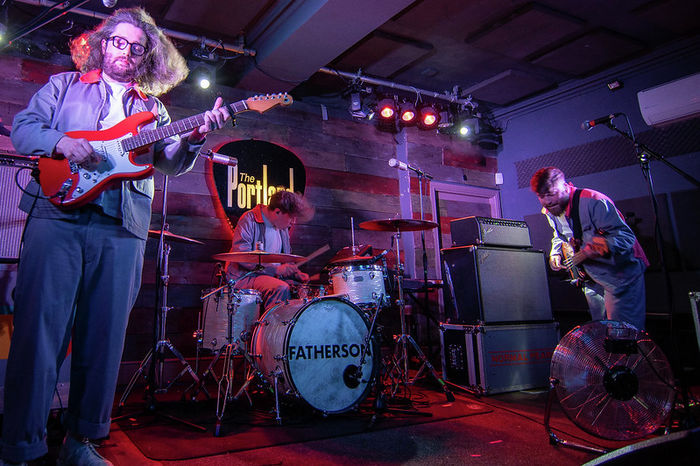Busking in Cambridge: The good, the bad and the ugly
Emily Lawson-Todd chats to third year Natsci Katya Bungay-Hill about her experiences busking in central Cambridge

Sitting down to talk with Katya, I realise that this isn’t the first time I’ve seen her this weekend. Our first encounter was on the street corner by Franco Manca where she was playing a folk-inspired cover of Talking Heads’ ‘This Must Be the Place’ to the bustling crowds flocking to the marketplace, a song she calls a “consistent crowd-pleaser”. After all, when Katya isn’t dashing off to lab practicals or frequenting Downing site as a third-year Natural Sciences student at Sidney Sussex, she’s a regular busker.
“I try to go about once a week – it doesn’t always happen!”
The rules around busking in Cambridge are surprisingly lax, with buskers not requiring a licence to play in the city centre. Thanks to these rules (or lack thereof), Katya admits that, although she has been busking for “four years or so” in her hometown of Oxford, it is only in the past couple of years that she has started taking to the streets with her guitar “more regularly”. “I try to go about once a week – it doesn’t always happen!” she laughs.
When I ask how she manages to balance her musical career with her degree, she admits that it’s fairly easy, saying that she just sees it “as another hobby” and that it’s a “nice way to relax”. On that second point, she laughs and corrects herself: “Actually, it’s not always that relaxing! You have to prepare for it, you have to be actively thinking all the time.” Comparing it to other, more traditional forms of music performance, she highlights that “you have to win people over in a way that you never have to do if you are playing a gig ... You have about 30 seconds to convince them that you’re worth being there or to try and make their day a bit better.”
“You have to win people over in a way that you never have to do if you are playing a gig”
With both of us knowing how chaotic the city centre can get, I ask how receptive people are to street performances. Katya is keen to highlight both the positive and negative interactions she encounters while playing. But the strangest? “The weirdest moment was when I was busking with one of my friends and it was all very lovely until this man who was probably very drunk came up to us and started screaming ‘I LOVE YOU’ into my ear!” she laughs, adding: “I just kept playing because what else are you supposed to do?” However, the good far outweighs the bad (and the ugly): “Plenty of people come up to you and tell you really sweet things … It gives you a really nice belief in yourself when people do walk up to you and engage.” For her, it’s these interactions and the “grit” that busking requires that matter far more than the money, which she doesn’t see as “the most important thing”. “It’s so human – it’s one of the most human types of performance I’ve ever done,” she says.
For Katya, “music was always there” – both at home and at school. “I credit a lot of my musical roots to my primary school because it was very big on singing. It showed me that [music]’s not just a chore, not just something you have to do in assembly. They took the time to make it something that was really fun.” As the Tories continue to slash funding for music and the arts across state schools, her statement that “the music you hear when you’re young is so formative for the sort of music you play and the sorts of musical intuitions you end up having” takes on a new dimension, as does her assertion that schools should be “teaching people that music is for everyone, that all types of music can be for everyone, that there’s not a ‘correct’ type of music”. Amid the chapel choirs and elite orchestras of Cambridge, I can’t help but agree with her about the importance of emphasising other forms of music, but also opening these opportunities to more people.
Before I leave her to rehearse, I ask Katya if she has any advice for students trying to break into the Cambridge music scene. Her guidance is refreshingly frank. “It just requires you being active,” she says. “Seek it out and know that people will only know that you exist if you put yourself out there.” When I think about her covering Joni Mitchell next to the marketplace, it dawns on me that there is no one in Cambridge better qualified to talk about being “out there”.
 Comment / Cambridge is right to scrap its state school target1 May 2024
Comment / Cambridge is right to scrap its state school target1 May 2024 News / Academics call for Cambridge to drop investigation into ‘race realist’ fellow2 May 2024
News / Academics call for Cambridge to drop investigation into ‘race realist’ fellow2 May 2024 Sport / The diary of a Bumps rower24 April 2024
Sport / The diary of a Bumps rower24 April 2024 Features / Will May Balls ever be sustainable?30 April 2024
Features / Will May Balls ever be sustainable?30 April 2024 News / Emmanuel College cuts ties with ‘race-realist’ fellow19 April 2024
News / Emmanuel College cuts ties with ‘race-realist’ fellow19 April 2024





